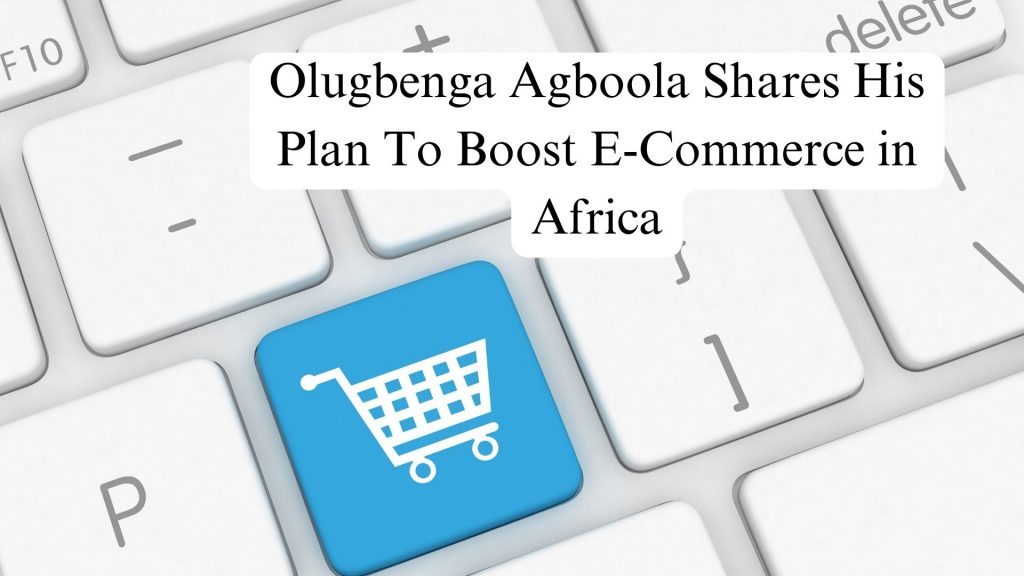We all have them. Those apps we open without thinking. Not because we need anything in particular, but because they feel… safe, in some…
Olugbenga Agboola Shares His Plan To Boost E-Commerce in Africa

As the founder of Flutterwave, the e-payment platform that’s become the backbone of Africa’s fintech sector, Olugbenga “GB” Agboola understands how to view the future of the continent’s economy.
As Africa’s financial systems develop and continue to take advantage of 21st-century technology, millions of people who’ve lacked access to traditional banking services and modern money management are opening digital accounts.
Africa’s emerging economies show great promise and amazing opportunities, Olugbenga Agboola says, but they also pose significant regulatory challenges. “Everything,” he says, “is an opportunity for us.”

Olugbenga Agboola Faces a ‘Major Challenge’
“If you come into Africa, there are over 50 countries and each of these countries have their own regulatory guidelines. What this means is that, if you want to operate in these countries, you have to do 50 different registrations and regulatory processes,” Olugbenga Agboola says.
“And while that is a challenge, a major challenge, we also see it as an opportunity because we’ve helped a couple of our biggest customers to expand within Africa in a faster way than they would’ve done than on their own simply by knowing the terrain and doing what we are supposed to do.”
So far, Flutterwave has partnered with international e-commerce titans like Uber to help bring new goods and services to Africa’s people. A big part of those partnerships is based on helping established businesses and startups overcome compliance issues.
For Flutterwave, that means approaching regulators with a sense of humility and showing respect for their laws.
“I wouldn’t say there are any regulations that we have challenges with, but I would say that every regulation is important to the regulator,” Olugbenga Agboola notes.
“And if you think that a market is important, then you have to treat every regulation, every policy, every rule as the beginning and the end. Because you can’t afford to say, ‘I’m taking this one really, really seriously, but I’m not taking this one seriously’ because the regulator knows why they made such rules and they know their markets. They know their country more than you do, and that’s how we approach it. We approach such regulations in a way that everything the regulators tell us, we are very, very, very intentional about listening to them and playing by the rules.”
Building Trust
The other major challenge facing African e-commerce is winning over consumers, who may react differently when it comes to new technology, Olugbenga Agboola says.
“Trust is a very important aspect of the fintech market in Africa,” he points out. “There’s a risk that a fake news story may go out against you, and because this is a low-trust region, people would believe it. That’s a very real risk. In this social media area, anything can just come up against you and people may stop using your product because you lost that trust.”
To help incoming companies and startups handle the African space, Olugbenga Agboola works to mitigate the trust issue before bad news has a chance to break.
“We do a lot of proactive trust building. We want to build so much trust equity with our audience so that when you hear something that is not good about a company, before you take any drastic actions, you insist on hearing from the company itself. And of course on the regulatory side, we mitigate that whole challenge by working with very strong in-country teams and very strong regulatory teams to ensure that we get all the needed requirements for us to be in various countries and enable mergers in those countries.”
The same understanding of regulations has allowed Flutterwave to expand its services beyond helping startups and foreign corporations. It’s also involved in nonprofit organizations operating in new places and securing funding from more donors than ever before.
“We are an enabler,” Olugbenga Agboola explains. “We may not go directly to help reduce poverty, but we are going to enable businesses that help to reduce poverty.
For example, there’s this merchant that we enable–what they do is crowdfunding for small, women-led community farmers.
They have a platform where anybody can invest there and then they take the money from those investors and give it to those women as loans. And those women, they farm and they make profit and pay back the loans.
So, they’re creating value and reducing poverty, but in the middle of this business is Flutterwave. We are there enabling the Entrepreneur to reduce poverty and we are also there enabling the business to create value for their stakeholders.”
Read More: Flutterwave teams up with Azure for seamless payments

